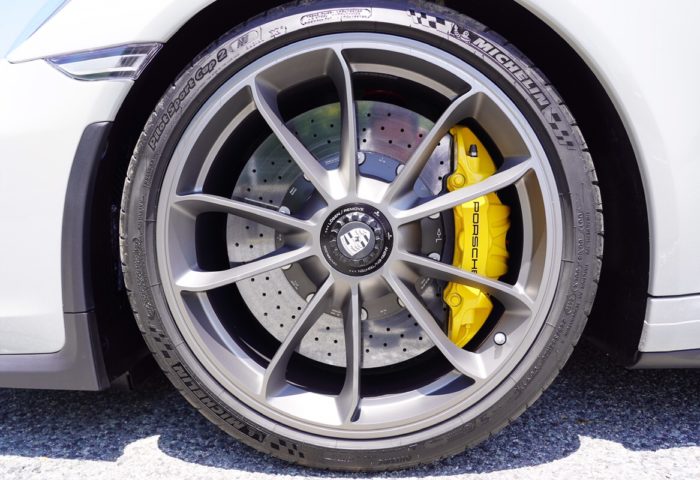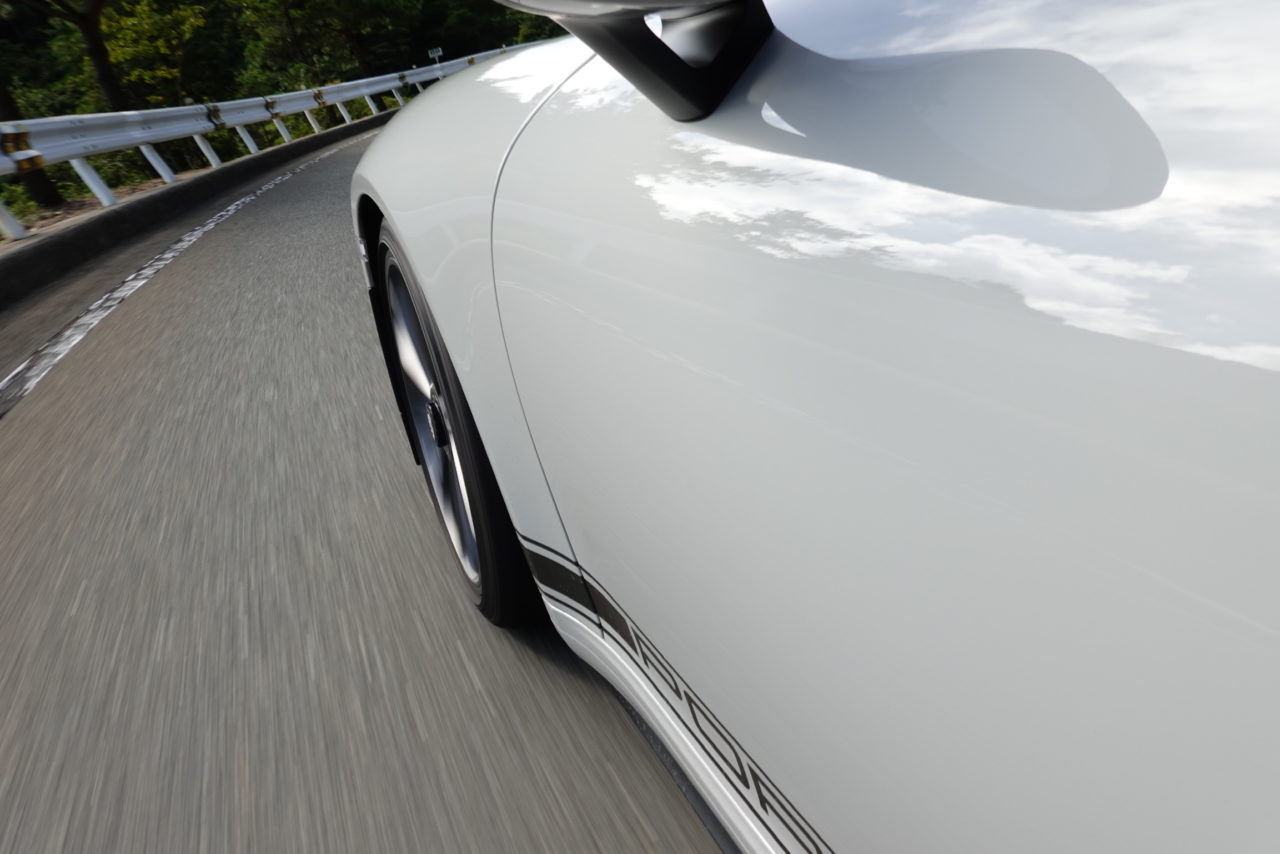How Does Porsche’s Ultra-Expensive PCCB Option Really Perform?
公開日:2020.01.12

Are There Any Downsides to PCCB?
If I had to mention any, one would be frequent brake squeal, and the other is that small stones tend to get caught.
I personally don’t mind the brake squeal—it actually feels very Porsche-like to me—so it’s not a complaint. However, PCCB is more prone to squealing than cast iron discs. The owner’s manual even warns about this.

In my car, the squeal is especially noticeable after repeated hard braking on winding roads. But after driving around town for a while, it naturally goes away.
As for stones getting caught, this happens because I sometimes drive the GT3 on narrow, rough roads. After passing through gravelly sections, I often hear a rattling noise from the brakes, which seems to happen more frequently than with cast iron brakes. I don’t know exactly where the stones get stuck, but this noise also disappears after driving for a bit.
Overall Impression of PCCB
PCCB’s incredible braking power and ease of control are in a class of their own. It’s also clear that it positively affects ride comfort and handling to some extent.
On the other hand, durability remains somewhat uncertain, but for someone like me who only lightly drives on track a few times a year, there’s no need to be overly worried. (It might be a different story at brake-demanding circuits like Fuji; I will continue to investigate.)
Whether it’s worth the price depends on the individual, but at least for me, if I buy a Porsche sports model like a 911, Cayman, or Boxster in the future, PCCB is definitely an option I want to include.
このブログが気に入ったらフォローしてね!


Comment ( 0 )
Trackbacks are closed.
No comments yet.